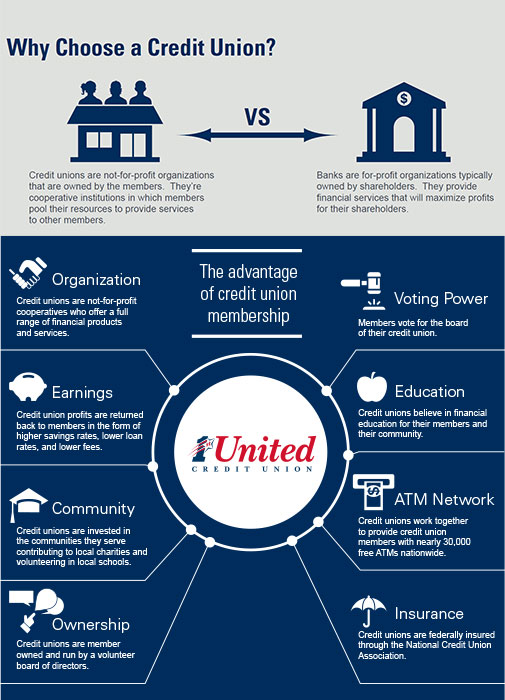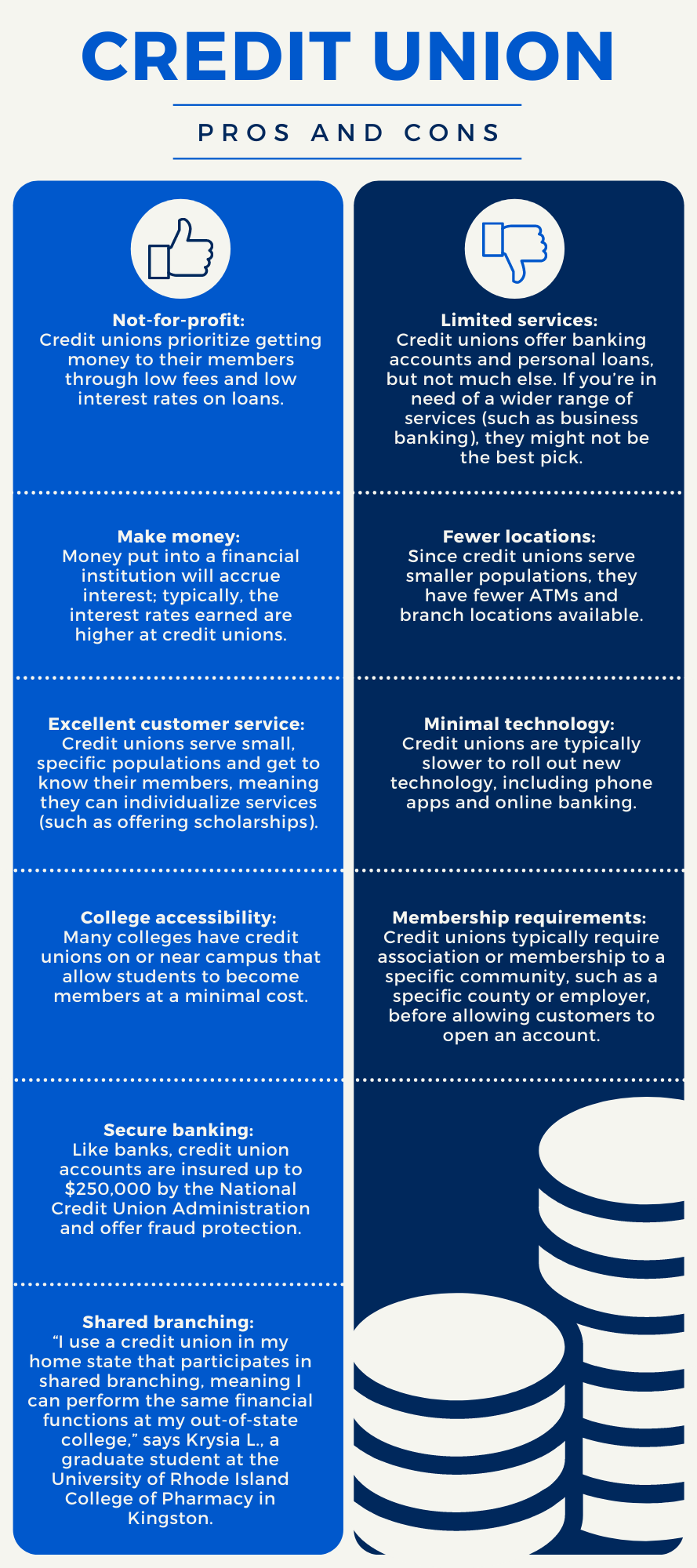Federal Credit Union: Top Quality Financial Providers and Assistance in Wyoming
Wiki Article
The Ultimate Overview to Recognizing Cooperative Credit Union
Credit history unions stand as distinct monetary entities, rooted in principles of shared support and member-driven operations. As we navigate through the ins and outs of debt unions, an informative trip waits for to drop light on these member-focused organizations and just how they vary from standard financial institutions.What Are Debt Unions?
Lending institution are member-owned banks that offer a range of financial solutions to their participants. Unlike typical financial institutions, credit score unions run as not-for-profit organizations, implying their primary emphasis gets on serving their members as opposed to maximizing profits. Participants of a cooperative credit union usually share a common bond, such as benefiting the exact same employer, belonging to the very same area, or being component of the very same company.One of the key advantages of lending institution is that they often supply greater rate of interest prices on interest-bearing accounts and lower passion rates on lendings contrasted to banks. This is due to the fact that lending institution are structured to benefit their participants directly, enabling them to hand down their profits in the kind of better prices and fewer charges. In addition, cooperative credit union are known for their customized customer care, as they focus on building connections with their participants to understand their one-of-a-kind monetary needs and goals.
Background and Development of Lending Institution

The roots of member-owned economic cooperatives, recognized today as cooperative credit union, trace back to a time when areas looked for alternatives to traditional financial organizations. The idea of lending institution originated in the 19th century in Europe, with Friedrich Wilhelm Raiffeisen often attributed as the pioneer of the cooperative financial motion (Cheyenne Federal Credit Union). Raiffeisen founded the initial identified cooperative credit union in Germany in the mid-1800s, highlighting community assistance and self-help principles
The evolution of lending institution continued in The United States and Canada, where Alphonse Desjardins established the initial lending institution in Canada in 1900. Soon after, in 1909, the initial U.S. credit rating union was created in New Hampshire by a group of Franco-American immigrants. These early credit rating unions run on the fundamental principles of common assistance, democratic control, and participant ownership.
With time, cooperative credit union have expanded in appeal worldwide due to their not-for-profit framework, concentrate on offering participants, and supplying competitive financial services and products. Today, cooperative credit union play an important function in the financial market, giving available and community-oriented banking alternatives for people and businesses alike.
Subscription and Qualification Requirements
Membership at a credit scores union is generally limited to individuals meeting certain eligibility standards based on the organization's beginning principles and governing demands. Some credit score unions may just serve people who work or live in a specific location, while others may be customized to employees of a particular company or participants of a specific association.In addition, cooperative credit union are structured as not-for-profit organizations, indicating that their key goal is to offer their participants as opposed to produce profits for investors. This concentrate on member solution frequently converts into even more personalized interest, reduced fees, and competitive rate of interest on lendings and financial savings accounts. By fulfilling the eligibility criteria and coming to be a member of a cooperative credit union, people can access an array of financial services and products customized to their specific requirements.
Services and Products Provided
One of the crucial elements that sets credit rating unions apart is the varied range of economic services and items they provide to their participants. Credit unions normally offer typical banking solutions such as cost savings and examining accounts, loans, and credit rating cards.
In addition, credit history unions often supply convenient online and mobile banking alternatives for members to easily handle their finances. They might use benefits such as shared branching, allowing participants to access their accounts at various other cooperative credit union throughout the country. Some lending institution likewise give insurance coverage items like vehicle, home, and life insurance to assist participants shield their assets and loved ones.
In enhancement to monetary solutions, credit unions frequently take part in neighborhood outreach programs and monetary education and learning campaigns to sustain their participants in attaining their economic goals.
Benefits of Financial With Credit History Unions
When taking into consideration banks, checking out the benefits of banking with cooperative credit union discloses one-of-a-kind advantages for participants looking for personalized solution and affordable prices. One substantial benefit of lending institution is their concentrate on individualized Federal Credit Union customer care. Unlike big banks, lending institution are member-owned and prioritize building solid partnerships with their participants. This implies that cooperative credit union staff frequently have a deeper understanding of their participants' monetary requirements and can offer customized options to assist them achieve their objectives. In addition, lending institution are recognized for using competitive interest prices on cost savings and car loans accounts. Because they are not-for-profit companies, cooperative credit union can commonly supply lower loan prices, higher financial savings prices, and lower charges compared to typical financial institutions. This can lead to substantial expense financial savings for members with time. In general, financial with a cooperative credit union can provide an extra customized, cost-efficient, and member-centric monetary experience.Conclusion

Credit score unions are member-owned financial institutions that provide a variety of financial solutions to their participants. The principle of credit scores unions come from in the 19th century in Europe, with Friedrich Wilhelm Raiffeisen usually attributed as the leader of the participating financial activity.The advancement of credit scores unions continued in North America, where Alphonse Desjardins established the first credit history union in Canada in 1900. Credit score unions typically provide traditional banking services such as savings and examining accounts, lendings, and credit scores cards.When thinking about financial organizations, exploring the advantages of financial with credit unions discloses one-of-a-kind advantages for participants seeking customized service and affordable prices.
Report this wiki page